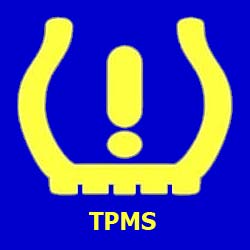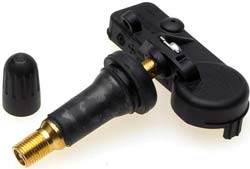Concerned about TPMS?
Using Ultraseal in Vehiles Equiped with TPMS In 2007 the Federal Government mandated that all new passenger cars sold in the US be equipped with Tire Pressure Monitoring Systems (TPMS). Since that time, thousands of these tires have been successfully treated with Ultraseal Tirelife Extender/sealer. We have continually tested and monitored Ultraseal-treated, TPMS-equipped vehicles to confirm and verify compatibility. Data collected over the past 10 years indicates there is a minimum likelihood of Ultraseal causing system failures or damaging wheel sensors. The number of reports of TPMS warning lights being triggered is surprisingly low (less than 10 during this period). Of those, the majority were corrected by simply adding air to the tire. There have been no claims that Ultraseal caused failures resulting in sensor replacements. If sealant were to partially block the sensor port it could temporarily restrict air passage causing inaccurate pressure readings, possibly triggering a TPMS warning light. Ultraseal is water-dispersible and can be easily cleaned from the sensor with a damp cloth causing no permanent effects.  In an excerpt from a recent Tire Industry trade paper, the head of Sales and Marketing from one of the largest TPMS sensor manufacturers said that sensors are designed to be compatible with most of the common chemicals found in a service bay. But they’re not bulletproof. In the event of a clogged sensor, do not attempt to clean the sensor port with a sharp object. In a related topic, Tire Review Magazine said that sensor batteries can last as long as 10 years or as little as 3 to 5 years depending on their design. There are 200 million sensors on the road today with 35% already nearing the end of their useful battery life. It is estimated that 9 million sensors will need replacement within the next 2 years. The point is there are numerous situations besides the use of tire sealants that can cause a TPMS warning lamp to be triggered. Major European auto manufactures are offering sealants as part of their standard OEM package to offset the recent departure of the spare tire in many of their vehicles. They fully understand the functional benefit of using a sealant and accept a minimal risk to the sensor. |





